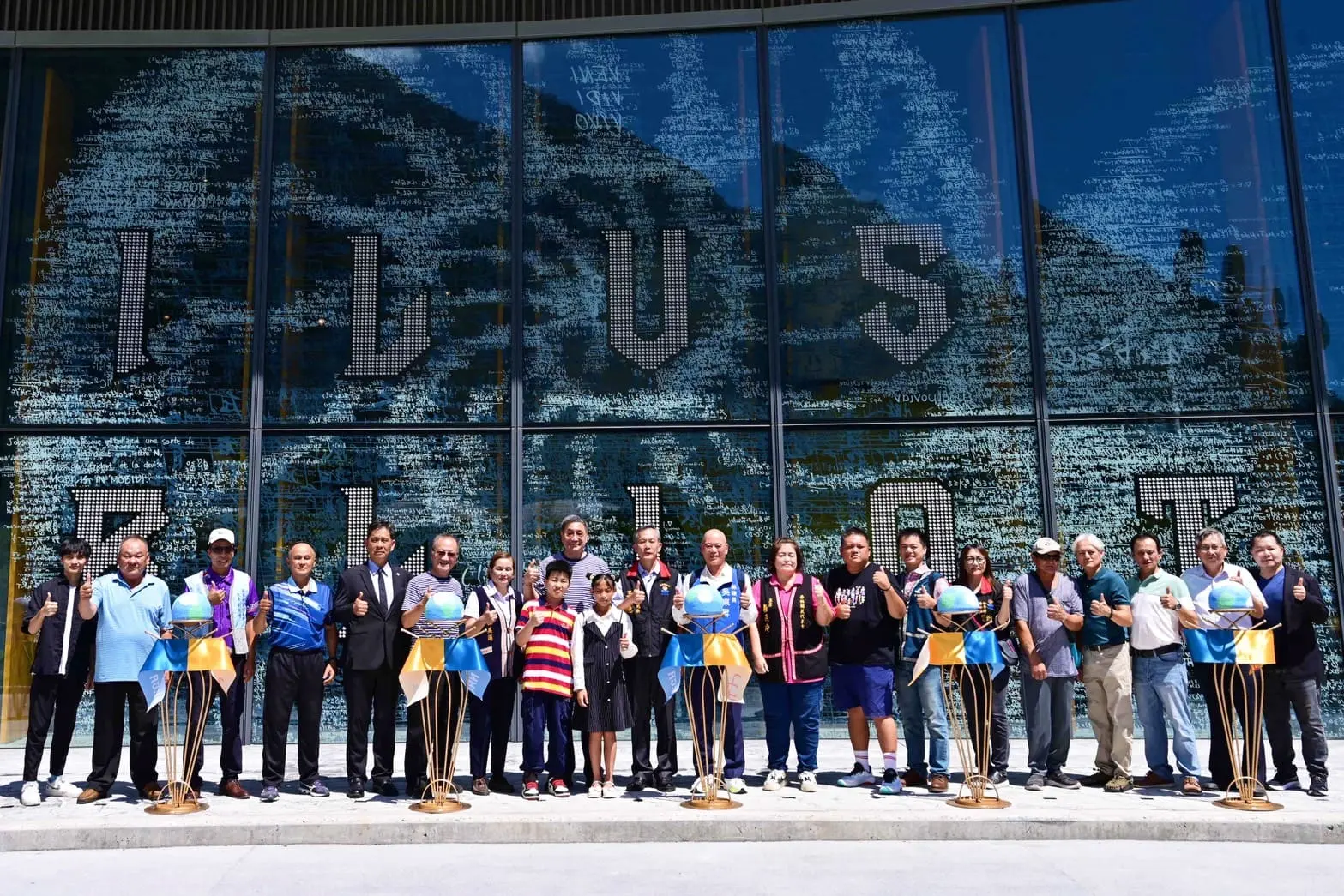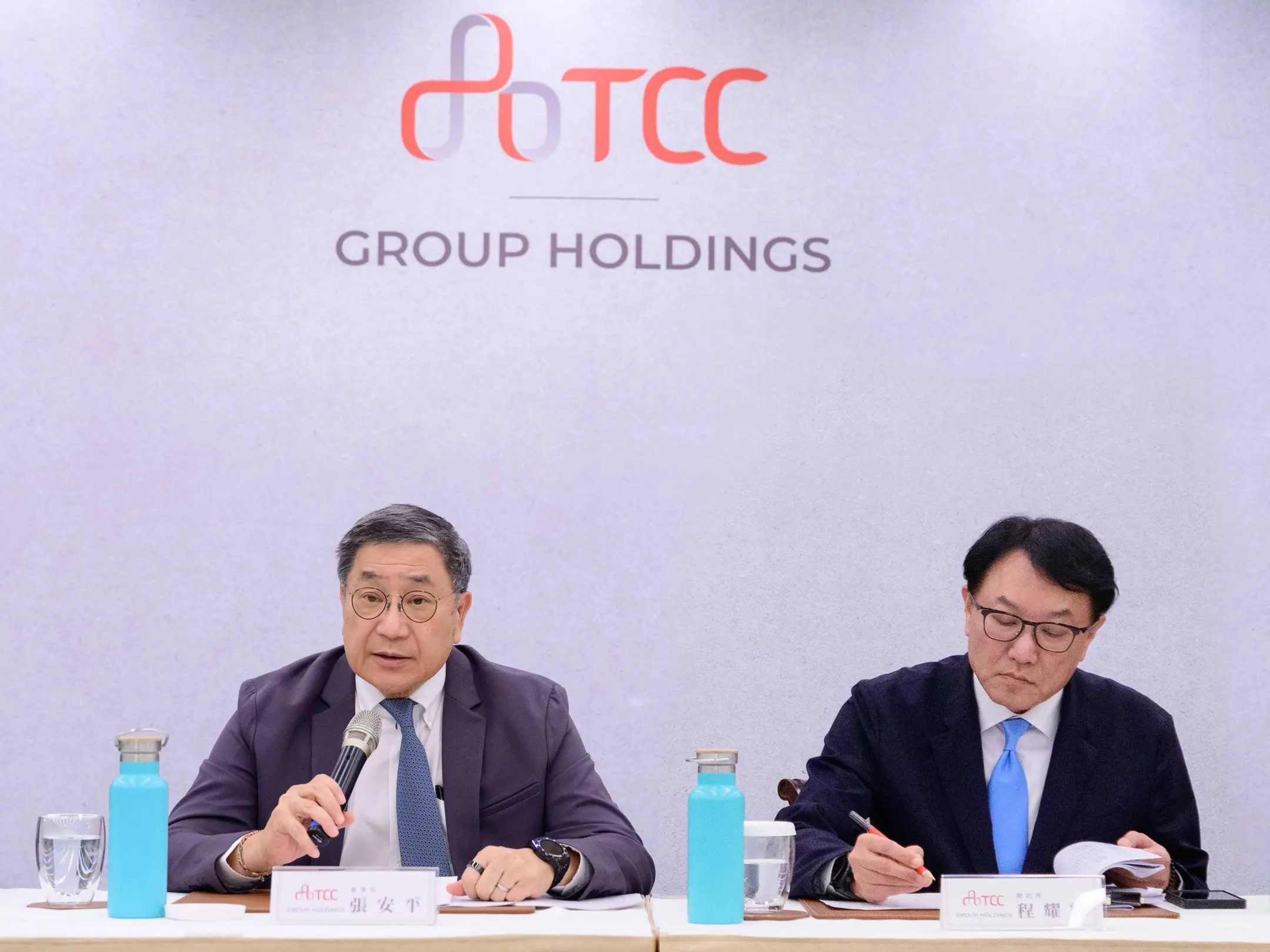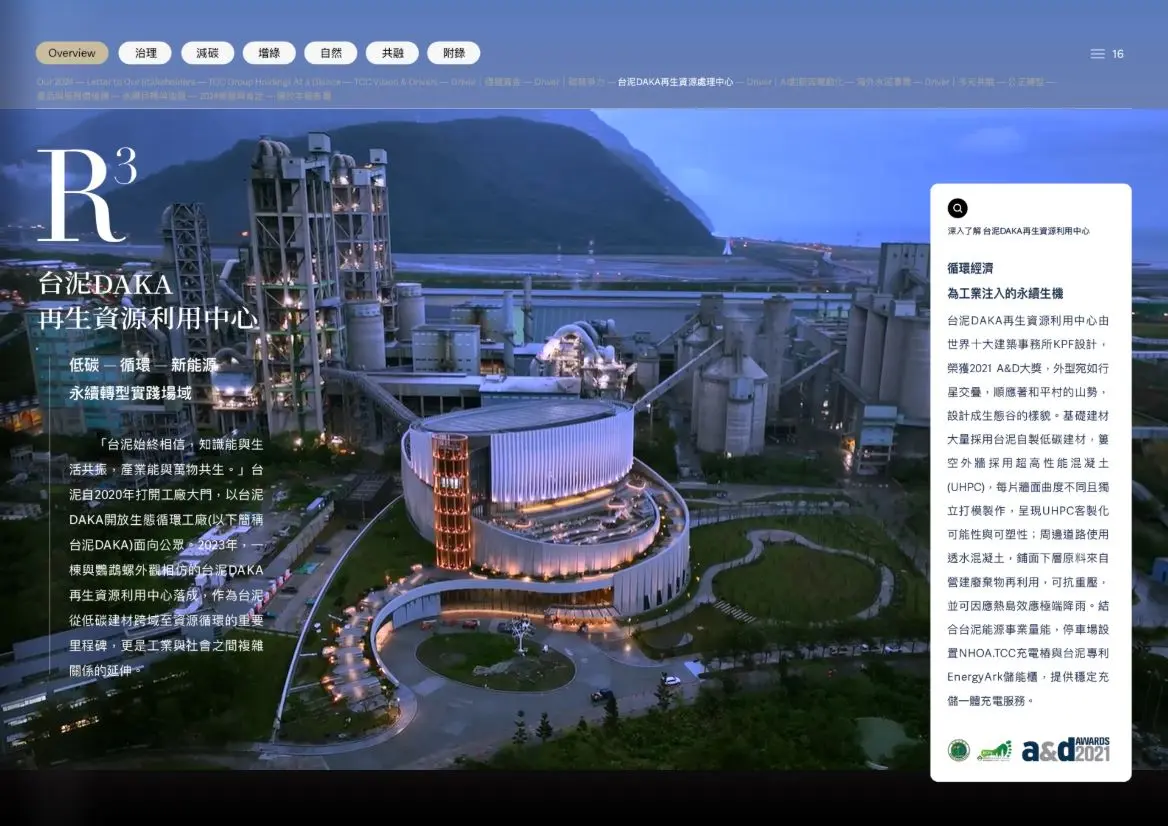Prioritizing People, Co-creating the Future: TCC's First Just Transition Report
- Home
- Sustainable E-newsletter
- Prioritizing People, Co-creating the Future: TCC's First Just Transition Report
Social 2025 Vol.03
Prioritizing People, Co-creating the Future: TCC's First Just Transition Report
- #Just Transition
-
-
-
Share
TCC understands that the journey to net-zero is not just a technological and data revolution, but a "social engineering" project centered on people. We deeply believe that trust is the foundation for all progress. Beyond our own carbon reduction efforts to "Do Less Harm," we must also consider how to "Do More Good" by ensuring every stakeholder is well cared for during this transformation.
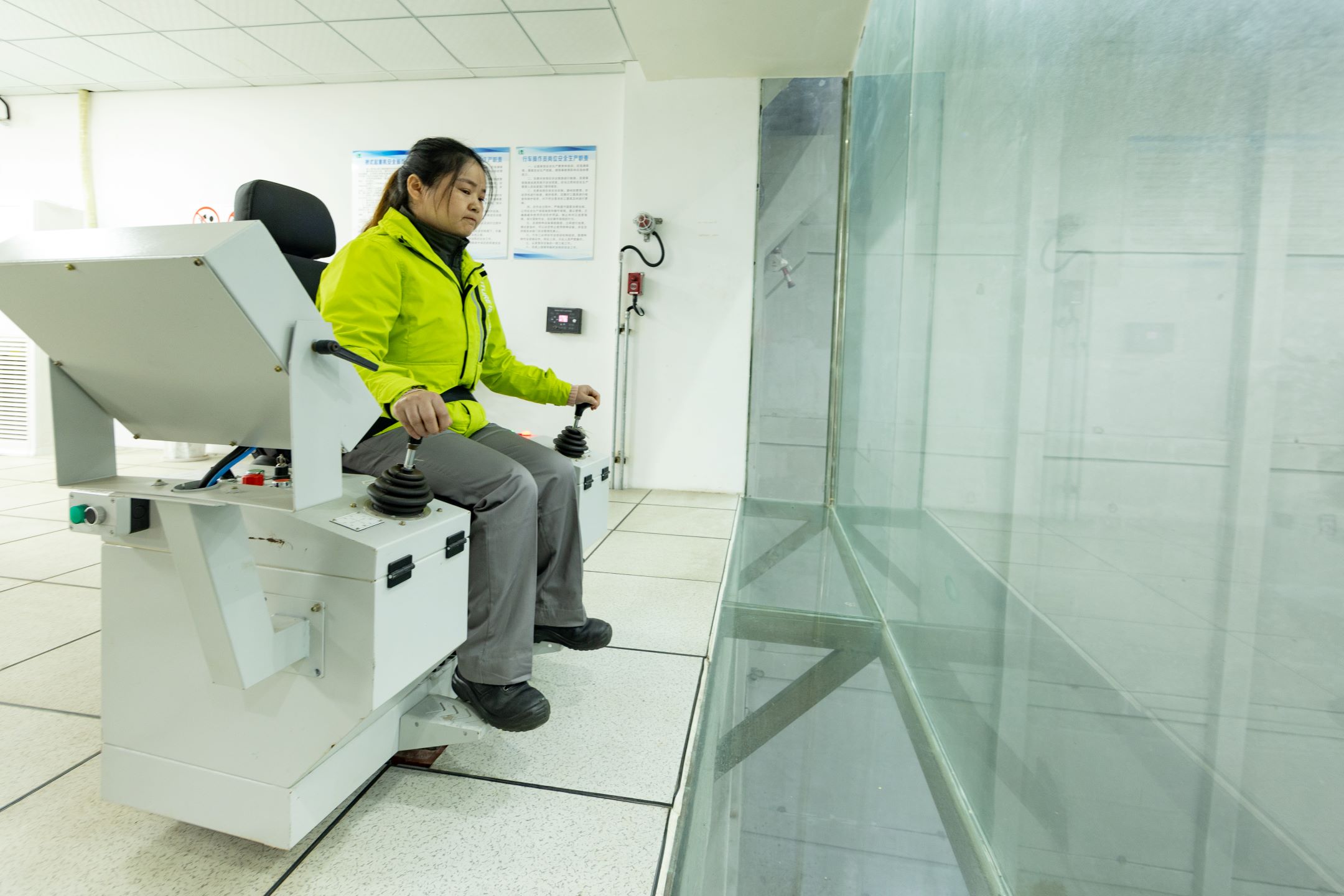
The environmental company located within the TCC Guangan Plant employs 23 staff members, all of whom transitioned from previous roles at the cement plant. Notably, one female employee from the plant's former weigh station successfully completed the company's transition training and obtained certification for equipment operation.
A People-Centric Approach: Creating a New Green-Collar Future for Employees
Rather than resorting to layoffs in the face of automation and the energy transition, TCC provides systematic training and job redesign to help our colleagues meet these new challenges. At our Jurong plant in Mainland China, we successfully reassigned former drivers to new intelligent positions after introducing a fleet of electric mining trucks.
This experience will be replicated at our Yingde plant in Guangdong, where approximately 67% of dispatchers are expected to transition from their current roles as mining truck drivers as part of the AI Smart Quarry Project.
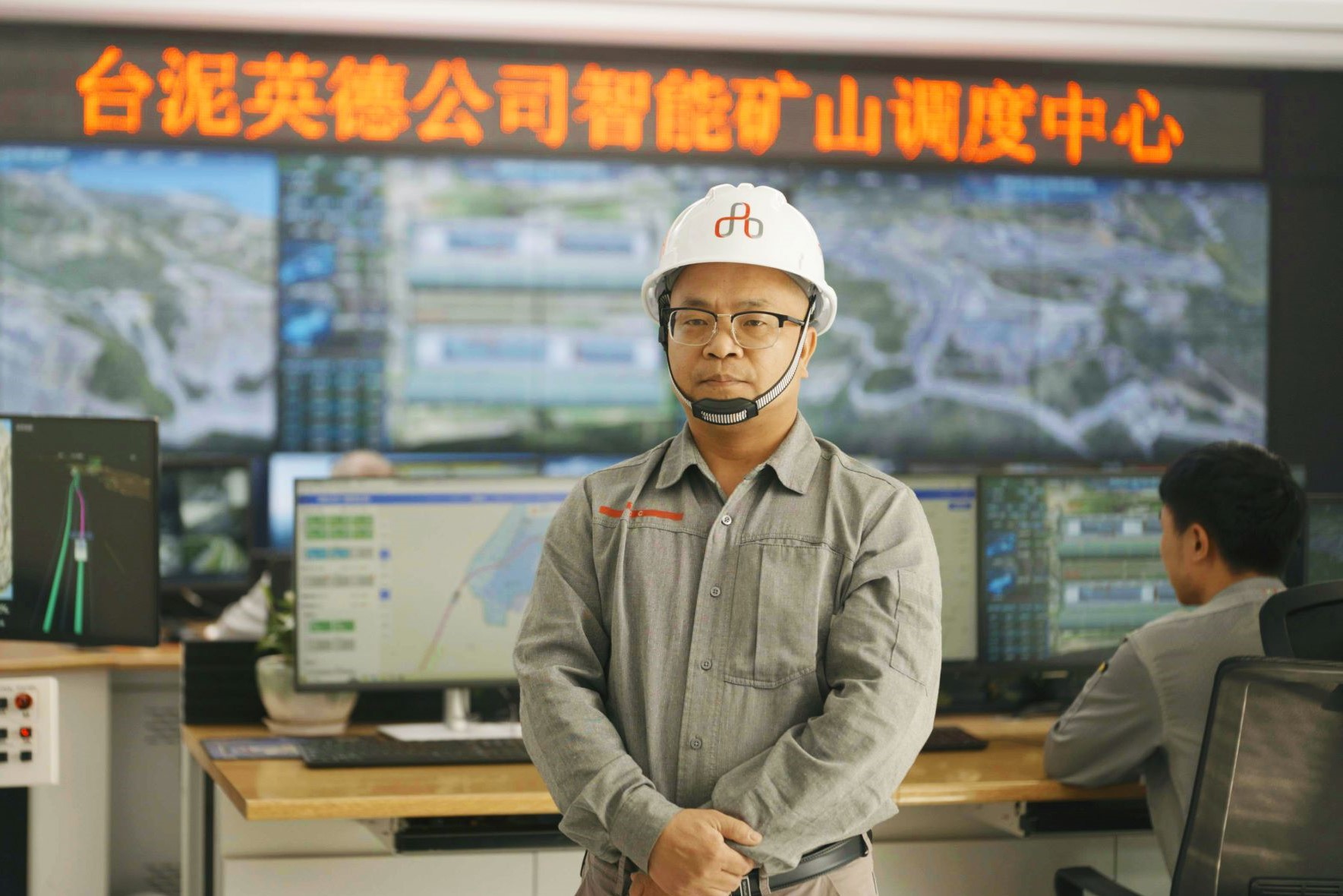
"I had no experience with high-tech before and was afraid I couldn't learn it," said Li Boqian, a truck driver at the Yingde plant. "But the company offered training, and I learned gradually. Now my office environment is not only more comfortable but also safer."
To systematically enhance the "green skills" of all employees, TCC launched the TCC Carbon Academy learning platform in early 2025. It provides a complete learning map, from basic awareness to professional certifications. Online courses have so far been viewed over 48,000 times, and the "Just Transition" course has a completion rate of 89%. Since 2018, TCC has created 1,433 green job opportunities and encourages internal transfers, allowing colleagues from Peace Power to join green energy projects and start a new career chapter.

Entering the Community: Rebuilding Trust from Setbacks
We believe that our factories are part of the community, and a company's transformation must be closely connected to the local area. The TCC DAKA Eco-Factory, which opened in 2020, has now attracted over 8 million visitors. It's not just a communication platform; it's become part of local residents' lives.
TCC has shifted from a traditional compensation model to empowerment. Through the DAKA Market, we've fostered the rise of "female power" and increased the non-manufacturing employment rate in local indigenous communities by 2.5%. According to a Social Return on Investment (SROI) analysis, every NT$1 TCC invests creates NT$3.54 in social value.
We also use everyday methods, like the "Carbon Reduction Parent-Child Bankbook," to enter schools and communities in Hualien and Yilan, transforming the broad topic of net-zero emissions into a daily activity of saving "carbon coins." This allows us to have honest conversations with residents about the transition challenges of Hoping Power Plant and work with them toward a low-carbon future.

In the Chiayi aquavoltaics project, we faced setbacks due to insufficient communication, but we chose to confront the problem. We adjusted our approach and established a cooperative principle of "fishery first, power co-existence" with local fish farmers. After a major typhoon, TCC and local suppliers helped elderly villagers repair their roofs, demonstrating the company's commitment as a community partner. The 2025 MQE battery cell plant fire served as a critical wake-up call, reminding us that safety and communication are the foundation for all development. Upholding principles of transparency, TCC proactively disclosed investigation progress to the public, established a neighborhood affairs team, and promised to release third-party environmental monitoring reports, hoping to transform this challenge into an opportunity to rebuild trust with the community by taking full responsibility.
Joining Hands with Partners: Empowering a Low-Carbon Ecosystem
The net-zero transition requires participation from the entire value chain. Through workshops and one-on-one counseling, TCC helps suppliers build capabilities in carbon inventory and footprint management. We have also established a Green Supply Chain Alliance with 19 suppliers who have committed to a 10% carbon reduction by 2030. We've also formed the Low-Carbon Construction Pioneer Alliance with downstream construction partners, with 242 members now applying low-carbon concrete in 2,867 projects to collectively build a low-carbon construction ecosystem. We are also turning our sustainability philosophy into green energy services.
Through our NHOA.TCC charging stations, we launched the "Off-Peak Charging for Earth" initiative, empowering consumers to make more environmentally friendly choices in their daily lives.
TCC's transformation is a journey co-created with all stakeholders. We deeply believe that only through honest communication and learning from setbacks can we build deep trust. In the future, we will continue to use a humble attitude and concrete actions to work with every partner toward a safer and more resilient sustainable future.
You may also like
TCC GROUP HOLDINGS
SUSTAINABLE E-NEWSLETTER.








